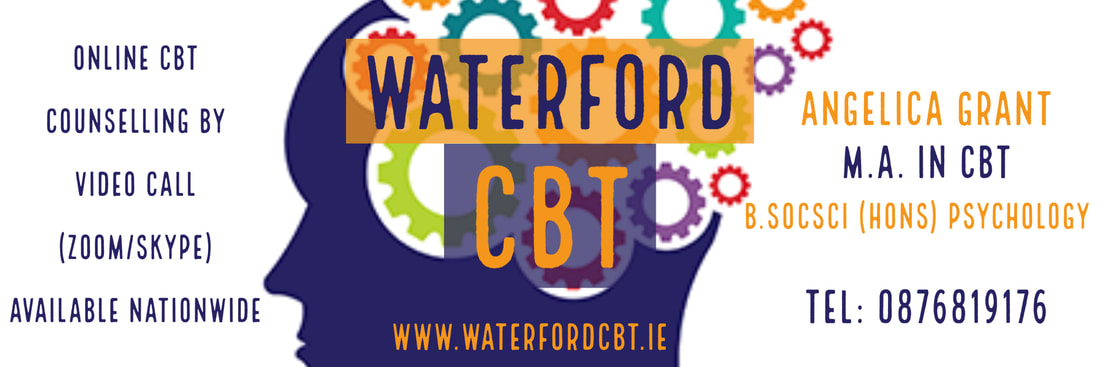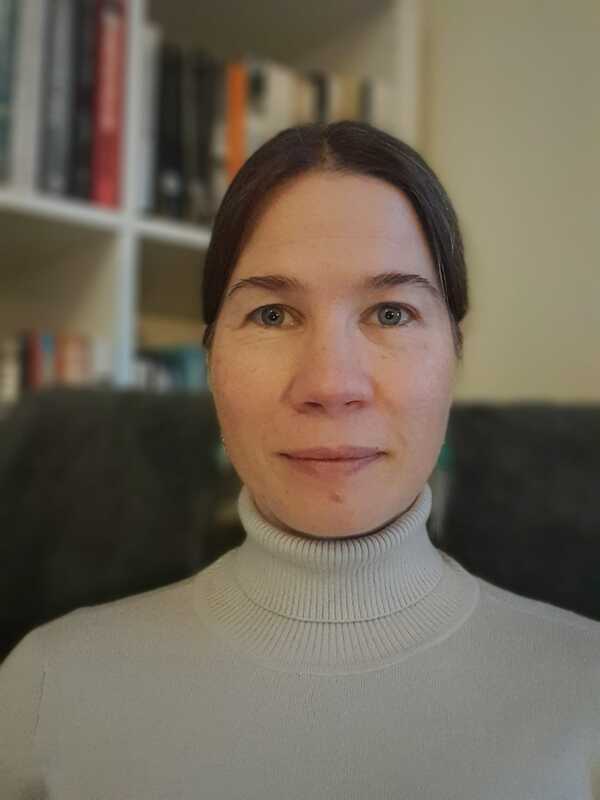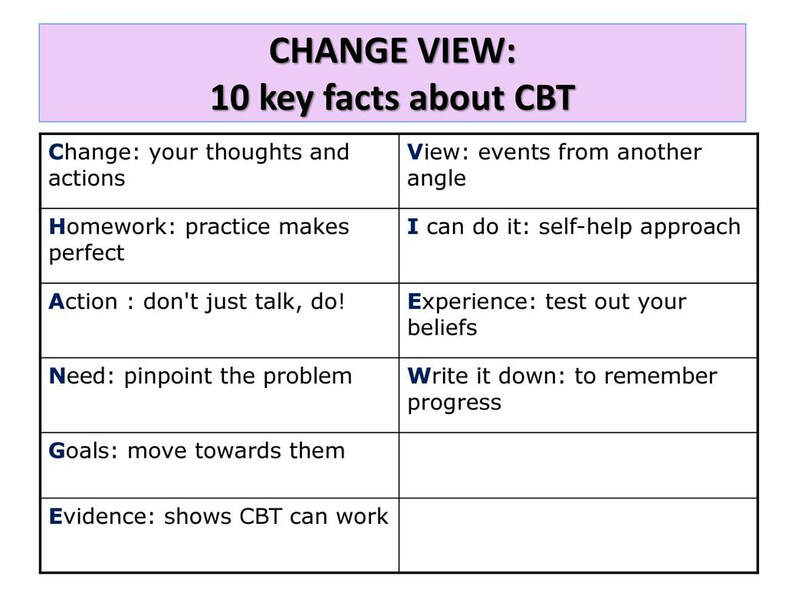Counselling in Waterford
CBT Therapist Angelica Grant (MAPCP)
Masters in Cognitive Behavioural Therapy
*** 07.04.2024: Due to high demand, I am currently not taking on any new clients ***
|
Welcome to Waterford CBT. I am a counsellor in private practice, providing CBT counselling, in person at my office in Tramore Medical Centre - or over Zoom or Skype calls. I am a fully accredited member of the Association of Professional Counsellors & Psychotherapists in Ireland (APCP).
Cognitive Behavioural Therapy (CBT) is a form of talk therapy that focuses on the interaction between thoughts, behaviours, moods, physical sensations and the environment/life situations. As these five aspects all impact one another, even a small change made in one area can lead to changes in the other areas too. CBT is a hands-on approach where current behaviours that emphasize symptoms are targeted, rather than a deep delving into the past. The client will learn how to identify negative automatic thoughts and unwanted behaviours which then can be modified through different sets of coping strategies. A collaborative relationship between the therapist and the client is a main tenet of CBT, where the client is encouraged and empowered to ultimately become their own therapist. CBT has been proven effective in the treatment of a wide range of issues, such as anxiety, depression, stress, low self-esteem, relationship issues and phobias, among others. I am also a qualified EMDR practitioner. EMDR is an evidence based treatment for Trauma, PTSD and Anxiety. For further information on my EMDR service, please click here. |
Fees for CBT: A session typically lasts for one hour and the fee is €60 per session.
Fees for EMDR: A session typically lasts for 75 minutes and the fee is €80 per session.
I charge a full fee for missed sessions and for cancellations where 24 hours notice is not given.
Generally speaking, between 6 and 8 sessions are needed, for therapy to be effective.
I do not work with minors (under 18).
I am a fully accredited member of the Association of Professional Counsellors and Psychotherapists in Ireland (APCP) and I abide by their code of ethics.
You can contact me, by call or text message, on 087 681 9176.
Fees for EMDR: A session typically lasts for 75 minutes and the fee is €80 per session.
I charge a full fee for missed sessions and for cancellations where 24 hours notice is not given.
Generally speaking, between 6 and 8 sessions are needed, for therapy to be effective.
I do not work with minors (under 18).
I am a fully accredited member of the Association of Professional Counsellors and Psychotherapists in Ireland (APCP) and I abide by their code of ethics.
You can contact me, by call or text message, on 087 681 9176.
What is Cognitive Behavioural Therapy (CBT)
Cognitive Behavioural Therapy (CBT) is an evidence-based treatment that has been found to be effective in the treatment of a wide variety of issues. It is particularly recommended for the treatment of anxiety and depression. CBT focuses on how the way we think (Cognitive) impacts on what we do and feel (Behaviour). CBT helps us to mindfully manage our Negative Automatic Thoughts about ourselves, the world and others.
How Does CBT Work?
CBT is a collaboration between the therapist and client. There is a substantial psychoeducational element to CBT treatment - the goal of which is for the client, over time, to become their own therapist.
As well as learning to dispute and deconstruct Negative Automatic Thoughts, CBT examines Unhelpful Thinking Styles, our Rules and Assumptions and the Core Beliefs (developed in childhood), which drive all of the other thought processes.
What's involved in CBT treatment?
Cognitive Behavioural Therapy (CBT) is an evidence-based treatment that has been found to be effective in the treatment of a wide variety of issues. It is particularly recommended for the treatment of anxiety and depression. CBT focuses on how the way we think (Cognitive) impacts on what we do and feel (Behaviour). CBT helps us to mindfully manage our Negative Automatic Thoughts about ourselves, the world and others.
How Does CBT Work?
CBT is a collaboration between the therapist and client. There is a substantial psychoeducational element to CBT treatment - the goal of which is for the client, over time, to become their own therapist.
As well as learning to dispute and deconstruct Negative Automatic Thoughts, CBT examines Unhelpful Thinking Styles, our Rules and Assumptions and the Core Beliefs (developed in childhood), which drive all of the other thought processes.
What's involved in CBT treatment?
- Together, we examine thoughts, beliefs, feelings and behaviours in order to see if they are rational and realistic or if they are unhelpful.
- Homework is an important element of CBT treatment. Clients who commit to experimenting with behavioural changes in their free time, generally experience better outcomes than clients who don't make that effort. A therapy session is just one hour out of the week. It is important to implement gradual, manageable change outside of the therapy session, in order to experience the full benefits of CBT.
- The treatment of Anxiety will often involve challenging Safety Behaviours, using Graded Exposure.
- It is the most researched, evidence-based treatment for a wide variety of issues and has been found to be particularly effective in the treatment of anxiety and depression.


